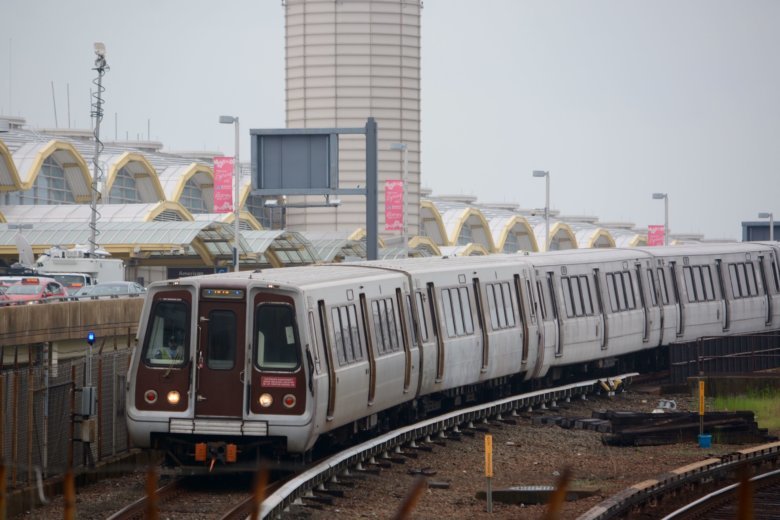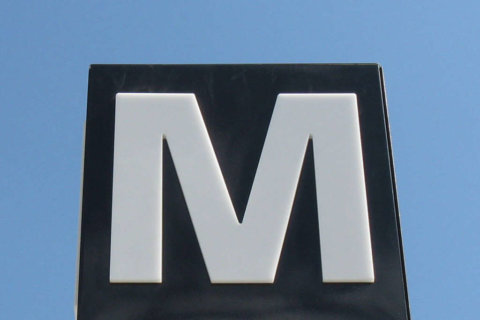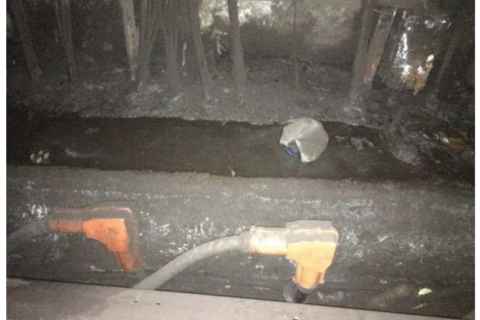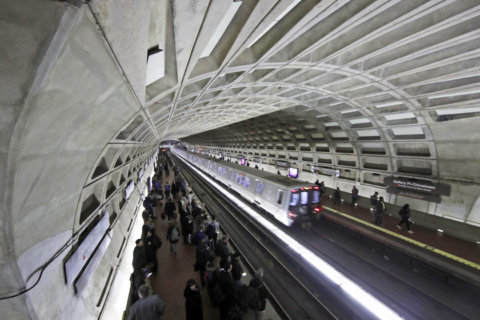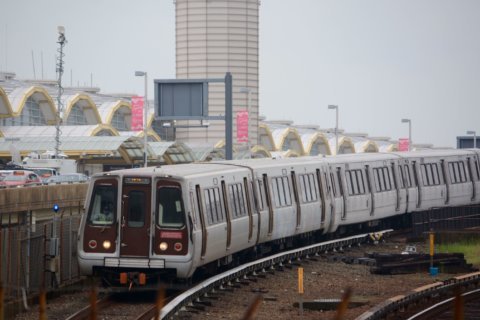
WASHINGTON — Metro has consistently failed to properly enter data into its maintenance and defect tracking system, has struggled to properly track parts inventories, has not had enough working diagnostic computers for bus maintenance, and has failed to keep elevators properly inspected and certified, a series of internal Metro reviews found.
The internal reviews have prompted the responsible departments within the agency to promise fixes for the problems over the next year, some of which have already begun.
Failure to track maintenance
Metro’s Quality Assurance, Internal Compliance & Oversight group found consistent issues with proper tracking of maintenance issues, work orders and parts in Metro’s primary system known as Maximo. That keeps Metro from analyzing trends and getting ahead of maintenance, and sometimes means workers must waste time redoing testing or other maintenance, the internal inspectors said.
While parts problems have been reduced, inventory accuracy at sampled facilities was only 75 percent. At a main bus parts facility, it was 50 percent. Metro said it has already begun work to address this and other issues.
More than three out of four maintenance work orders did not have all proper information entered, quality control audits were skipped, and parts for old railcars no longer running in the system remained sitting in maintenance shops.
In bus garages, 88 percent of work orders did not have the correct details or had details that were too generic about the component that failed or what the problem actually was. That has been exacerbated by the lack of detail provided to maintenance technicians about the problems in the first place, which slows down troubleshooting and repair efforts.
Bus maintenance workers also do not get formal training on how to use the Maximo system, which is meant to help Metro identify trends that might need larger-scale fixes.
In rail yards, a sample of 80 corrective maintenance work orders found many without proper details, including more than half with clearly incorrect component codes.
Other types of work orders or tags labeling failed railcar components checked found a variety of additional problems, including a lack of complete information, no record that a technician had been assigned to verify the problem, and no consistency in tracking problems identified in preventive maintenance inspections.
Required railcar maintenance quality control also had not been performed until these internal reviews raised the issue in February.
Elevator problems
Of 80 elevators initially checked with safety work orders, Metro had 32 elevators more than 30 days past the deadline for repairs. Fourteen of those 32 had expired local government inspection certificates.
A review of all 278 Metro elevators that carry riders found that on Feb. 23, 56 had no inspection certificate posted in Metro’s internal database. An analysis of 41 elevator records found 71 percent of them were out of compliance. Thirteen had no certificate information, and 16 had outdated certificates.
“Of the 16 records with outdated certificates, only eight had annual inspections performed before the expiration dates,” an internal review found.
Metro’s elevator and escalator department has promised to address the issues by next May with better scheduling, a process for past due inspections and updated monthly maintenance checklists.
Elevator maintenance records and safety and maintenance audits were also found to be missing or not properly completed.
While the internal review department requested all preventive maintenance documents for 24 elevators from July 2017 to Jan. 2018, only 66 percent of the expected documents were provided. Only three of the elevators had complete records for each month with all required fields filled in. Some of the inspection reports produced were on out-of-date forms.
At the Silver Spring Transit Center, there were no maintenance logbook entries for months, in part because the logbook was stored in a location difficult for elevator maintenance teams to access.
At the Franconia-Springfield garage, a contractor had to continually redo work after a rehab project. An internal review found there was no procedure in place to ensure safety and security certification is done properly following an elevator upgrade.
In that work, an elevator remained out of service because the emergency call function still did not work. The elevator and escalator department said it was still working with the contractor “to resolve reliability issues and conform to WMATA standards.”
Metro also did not have safety audit records from a number of elevator supervisors.
Metro also had no procedure to handle deferred maintenance scheduled but not completed in a given month.
No training records existed on several specific topics for managers or three randomly selected technicians.
Bus, rail car maintenance issues
Metro did not have enough diagnostic laptops required for bus maintenance, and some of the software licenses were out of date. Since the laptops were not connected to the internet, technicians also could not access information on manufacturer websites required for maintenance troubleshooting work.
“Providing updated diagnostic computers and troubleshooting software are essential for effective and efficient bus repair activities,” the internal review said.
At the time of the review, Bladensburg had four computers, Montgomery had five and Shepherd Parkway had three.
On shop floors and in stockrooms, a number of used, unlabeled parts lay in areas where it was not clear whether they should be reused or scrapped, creating a risk that failed parts could be installed on trains or buses.
For example, automatic train protection relays sat unlabeled in cardboard boxes on open shelves, when Metro policy calls for the safety-critical relays to be stored in hard cases with molded foam interiors.
In rail car shops, Metro has responded to the internal review by putting more high-usage materials near workers who had been short of fasteners, cable ties and seals which forced them to waste time getting the materials or waiting for the materials to come from another Metro facility.

